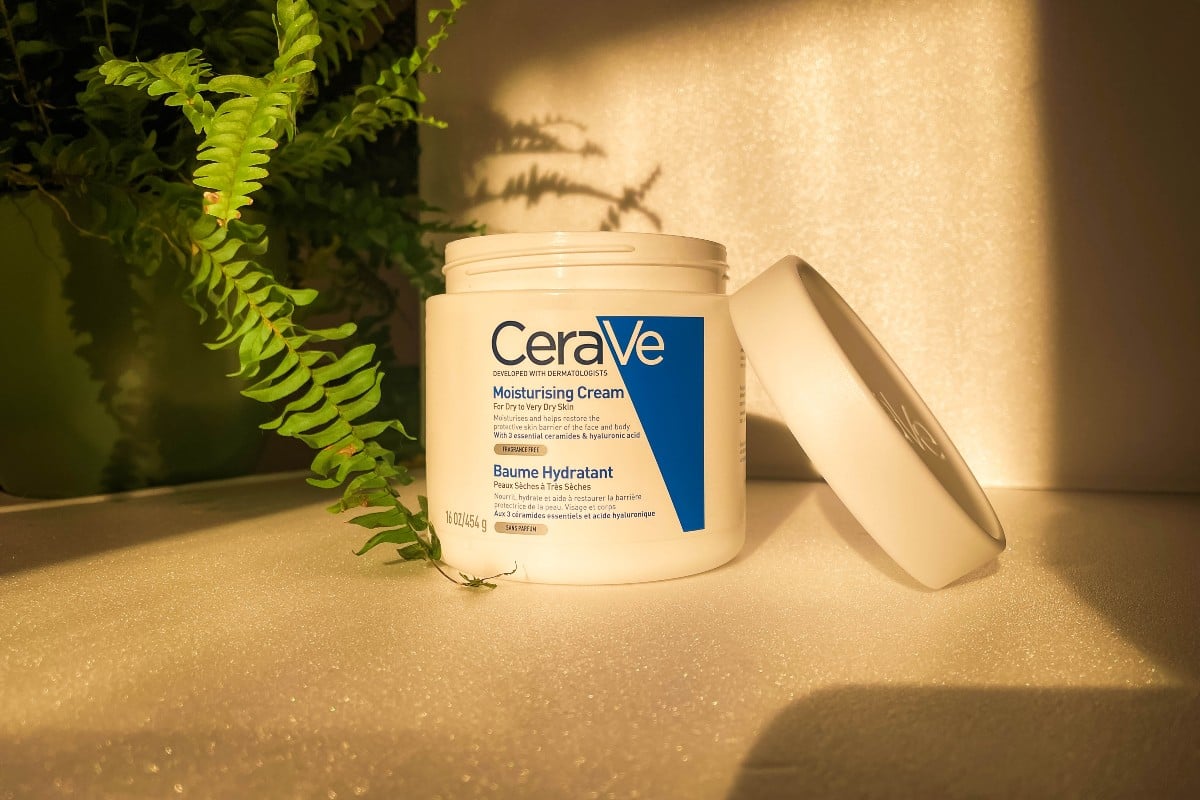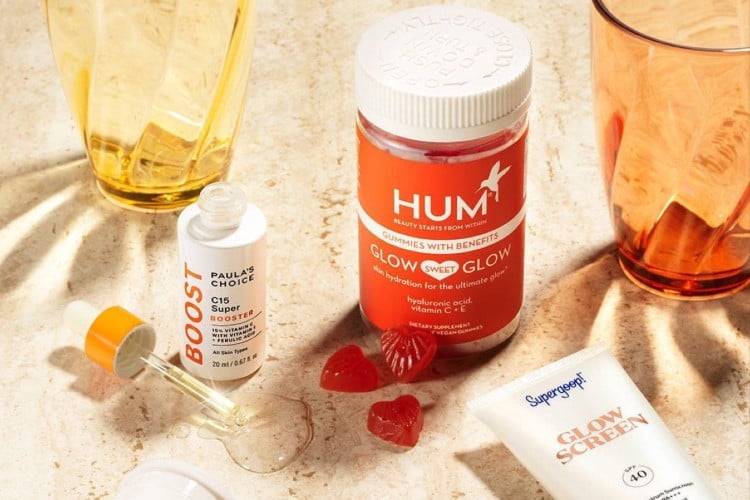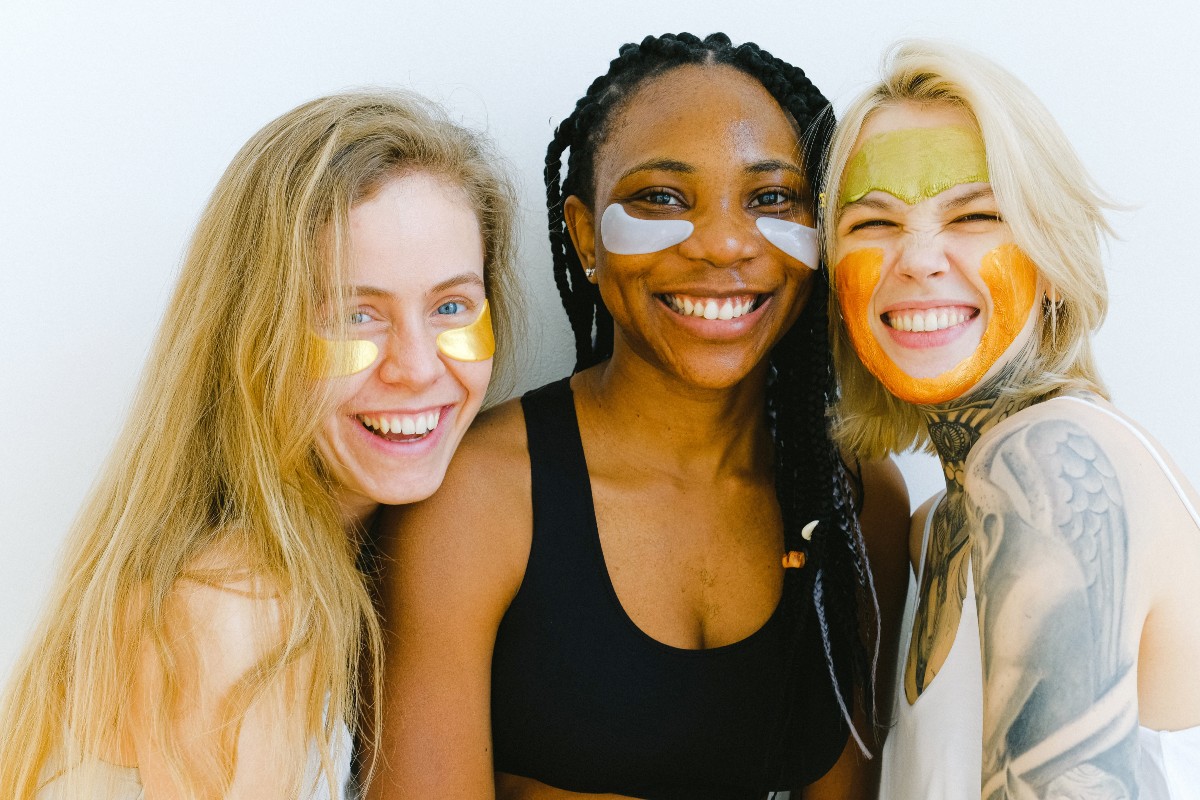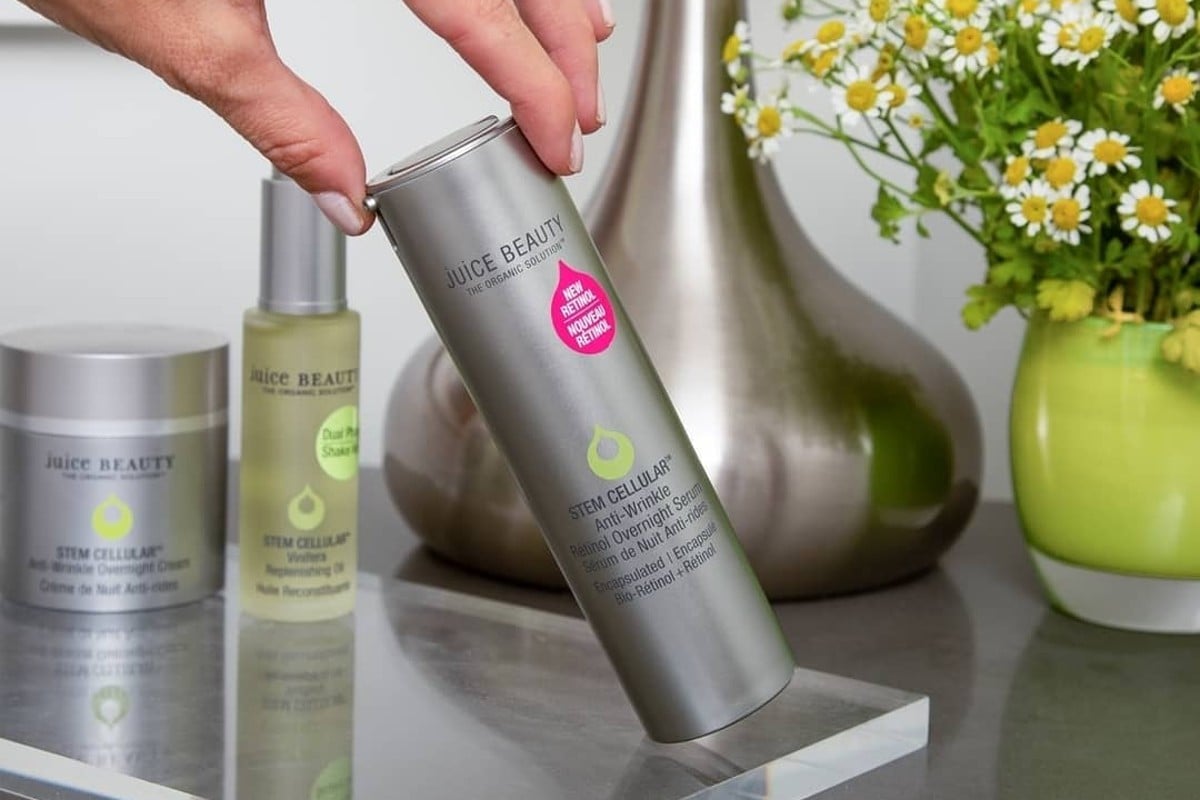Sooner or later, we all start buying all sorts of products hoping they’ll do miracles for our fine lines and wrinkles or reverse damage caused by sun exposure. But picking anything from the skincare aisle that lauds itself as an anti-ager won’t necessarily bring the transformative changes you’re hunting for. That is because over-the-counter (OTC) products don’t require to undergo any specific tests to demonstrate their effectiveness before entering the market since they aren’t classified as drugs. This allows brands to push unrealistically claims, which, you’ve guessed it right, rarely come true. So one of the golden rules in skincare is to turn a blind eye to marketing claims and stick only to products made with tried and true actives if you want outstanding results.
As far as anti-aging is concerned, there are a lot of ingredients intended to improve skin texture, tone, fine lines, and wrinkles. But we selected only the A-class ones that have been scientifically proven countless times to be effective in eliminating all aging signs.
Retinol
There’s no surprise retinol is at the top of the list. It’s for sure the most researched ingredient for anti-aging and has been proven millions of times to have regenerative effects on fine lines, wrinkles, and photodamage (in other words, all forms of skin aging). Because it promotes cell turnover, retinol accelerates the rate at which the healthy cells replace the old ones, resulting in firmer and smoother skin over time.
Retinol products also reduce fine lines and wrinkles by building collagen, protecting proteins against degradation, and stimulating the production of new blood vessels in the skin. And if that wasn’t enough, retinol is an antioxidant that protects cells against oxidation.[1]
Learn more about retinol:
- What Is Retinol
- Retinol Serums
- Retinol Creams for Beginners
- How To Use Retinol on Sensitive Skin
- Retinol Is Not Working
Sunscreen
Everything turns on sunscreen when it comes to protecting skin against photoaging and preventing early wrinkles. This is because sunscreen is the first line of defense against UV damage, which is thought to cause 90% of facial wrinkles.[2] Researchers also add weight to the idea that using sunscreen and vitamin C is the gold standard of sun protection — while SPF blocks UV from entering the skin, vitamin C fights free radicals. Chemical or physical sunscreen is a matter of preference; both will do as long as they have at least SPF 30 and you use them every day.
If you’re not sure where to start, here are some great SPF 50 sunscreens that everyone raves about.
Vitamin C
There’s a reason (actually more) vitamin C is almost never missing from people’s routines: it’s one of the most potent anti-aging ingredients because it’s a powerful antioxidant that scavenges free radicals, promotes collagen production, and builds lipids in the skin to reinforce the moisture barrier.[3] It also has an unmatched ability to brighten dark spots by inhibiting the production of melanin, the pigment that darkens the skin.
Since the topical use of vitamin C is favored in the practice of dermatology, adding a vitamin C serum to your skincare regimen can help improve multiple aging signs at once. PS: Use a product with at least 15% vitamin C in your morning routine (daily) for the best results.
Learn more about vitamin C:
Alpha-hydroxy acids
Alpha-hydroxy acids (AHAs), like glycolic, lactic, malic, and tartaric acids, are often used in skincare as superficial peeling agents to exfoliate the top layer of the skin. They also act as humectants to increase moisture retention and provide hydration. Depending on the concentration, AHA-infused products can remove dead cell buildup from the skin’s surface and even sink into deeper layers where they can support collagen formation, plumping wrinkles and enhancing firmness.[4] After each use, you’ll likely notice your skin is smoother, softer, and evener, while fine lines are less noticeable. Check out these lactic acid peels and glycolic acid serums.
Coenzyme Q10
Coenzyme Q10 is a naturally-produced antioxidant present in almost every body cell. Aside from reducing oxidative stress, CoQ10 is needed for proper cellular energy production and cell maintenance, both of which play a major role in skin health. A 2015 study on the benefits of topical CoQ10 concerning cellular energy metabolism and antioxidant effects found that the treatment might counteract environmental stress and cell damage, resulting in increased protection against premature skin aging.[5]
Ceramides
Ceramides are the main lipids that form the outermost layer of the skin (known as stratum corneum or protective barrier). The role of ceramides is to create a water-impermeable, protective layer to prevent moisture loss while serving as a barrier against irritants and bacteria. They’re one of the anti-aging powerhouses responsible for supporting the skin’s dynamic nature. Simply put, ceramides lock moisture and help prevent dehydration and fine lines, which is why you need them in your skincare routine. Consider using these ceramides creams every night to restore your skin’s protective barrier and consolidate its defense.
Peptides
Peptides are strings of amino acids found in every cell and tissue of the body. When peptides are applied to the skin, they send signals to cells to build collagen and elastin, reinforcing all the structural components needed for the skin’s firmness and elasticity. While there are multiple types of peptides used in skincare products, the best ones for anti-aging are Matrixyl, copper peptides, and epidermal growth factor — they have been heavily researched to support skin integrity and reduce aging signs. You might want to check these peptide moisturizers, Matrixyl serums, and growth factor products.
Hyaluronic acid
Hyaluronic acid is an important molecule produced by the body responsible for the skin’s natural ability to hydrate and retain moisture from the atmosphere. As a multi-functioning molecule, it can hold nearly 1,000 times its weight in water, helping moisturize and plump the skin and regulate water transport in tissues. Without it, the skin loses moisture, firmness, and plumpness, so having a hyaluronic acid product in your beauty routine is pretty essential to soften fine lines and wrinkles.
Note that in skincare products, hyaluronic acid comes mainly in two sizes: high molecular weight and low molecular weight (sodium hyaluronate). The difference between them is that the former sits more on the skin’s surface due to the large molecules, providing instant hydration, while the latter can sink into the skin to deliver deeper, longer-lasting moisture.
Niacinamide
Niacinamide (also known as nicotinamide) is a vitamin B3 derivative you’ll often find in skincare formulations. It’s a key player in the skin aging process since it builds NAD (nicotinamide adenine dinucleotide), an essential coenzyme responsible for hundreds of cell processes. In addition, niacinamide promotes collagen formation, supports the skin’s moisture barrier by stimulating ceramides and fatty acids production, and increases the antioxidant defense.[6][7] During a clinical study, a 5% niacinamide product applied daily for 12 weeks drastically improved skin appearance, resulting in fewer fine lines, wrinkles, and dark spots.[8]
DMAE
DMAE (Dimethyl MEA) is another tried and true anti-aging hero with a unique ability to instantly firm and plump the skin. In a clinical study, a facial gel containing 3% DMAE applied daily has been proven effective in mitigating forehead lines, wrinkles, sagginess, and dark circles and improving the overall appearance of aged skin without major adverse effects. The anti-aging mechanisms of DMAE are believed to be due to the DMAE’s effects on regulating cellular processes and strengthening facial muscle tones.[9]
Footnotes
Women’s Concepts uses reliable sources, including dermatologists’ insights, clinical trials, and scientific journals, to find accurate information and support all the facts shared in our articles. All statements and claims have clear and legit references. Read our editorial policy to learn more about our sources of information, our process of researching and fact-checking the content, and how our team strives to keep all articles updated, completed, and trustworthy.
- Zasada M, Budzisz E. Retinoids: active molecules influencing skin structure formation in cosmetic and dermatological treatments. Postepy Dermatol Alergol. 2019 Aug.
- Shanbhag S, Nayak A, Narayan R, Nayak UY. Anti-aging and Sunscreens: Paradigm Shift in Cosmetics. Adv Pharm Bull. 2019.
- Pullar JM, Carr AC, Vissers MCM. The Roles of Vitamin C in Skin Health. Nutrients. 2017 Aug 12.
- Tang SC, Yang JH. Dual Effects of Alpha-Hydroxy Acids on the Skin. Molecules. 2018 Apr 10.
- Knott A, Achterberg V, Smuda C, Mielke H, Sperling G, Dunckelmann K, Vogelsang A, Krüger A, Schwengler H, Behtash M, Kristof S, Diekmann H, Eisenberg T, Berroth A, Hildebrand J, Siegner R, Winnefeld M, Teuber F, Fey S, Möbius J, Retzer D, Burkhardt T, Lüttke J, Blatt T. Topical treatment with coenzyme Q10-containing formulas improves skin’s Q10 level and provides antioxidative effects. Biofactors. 2015 Nov-Dec.
- Tanno O, Ota Y, Kitamura N, Katsube T, Inoue S. Nicotinamide increases biosynthesis of ceramides as well as other stratum corneum lipids to improve the epidermal permeability barrier. Br J Dermatol. 2000 Sep.
- Matts, Paul & Oblong, John & Bissett, D.L.. (2002). A Review of the range of effects of niacinamide in human skin. Int Fed Soc Cosmet Chem Mag. 5. 285-289.
- Bissett DL, Oblong JE, Berge CA. Niacinamide: A B vitamin that improves aging facial skin appearance. Dermatol Surg. 2005 Jul.
- Grossman, Rachel. (2005). The Role of Dimethylaminoethanol in Cosmetic Dermatology. American journal of clinical dermatology. 6. 39-47. 10.2165/00128071-200506010-00005.






